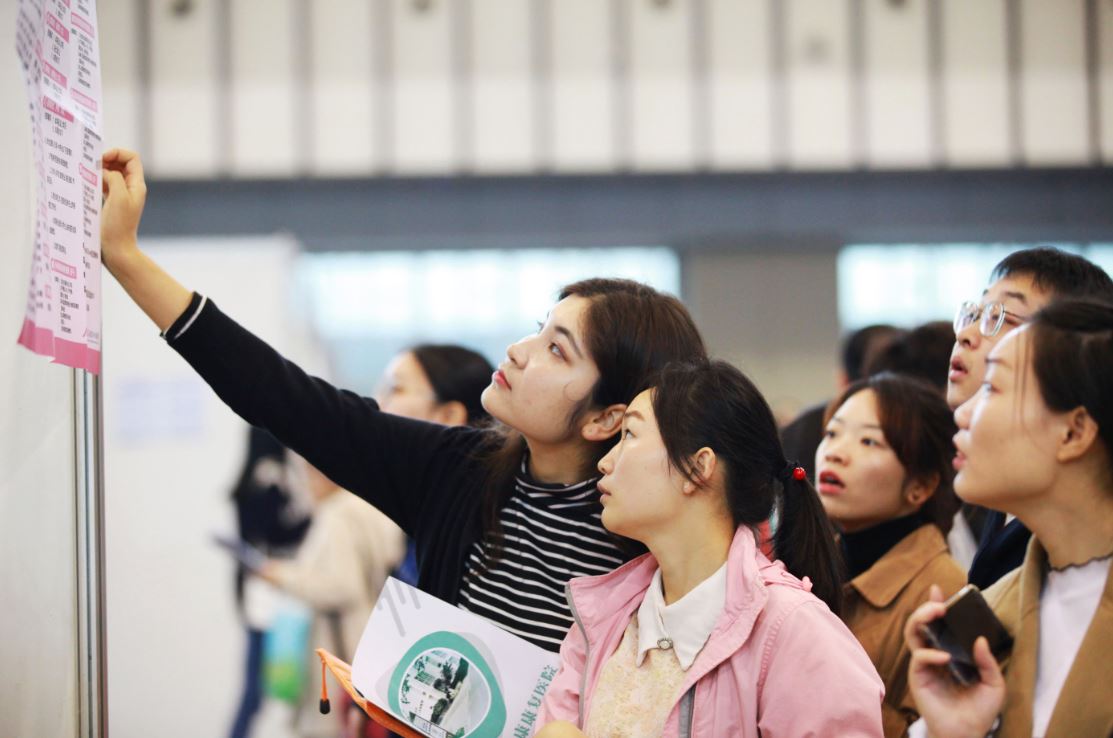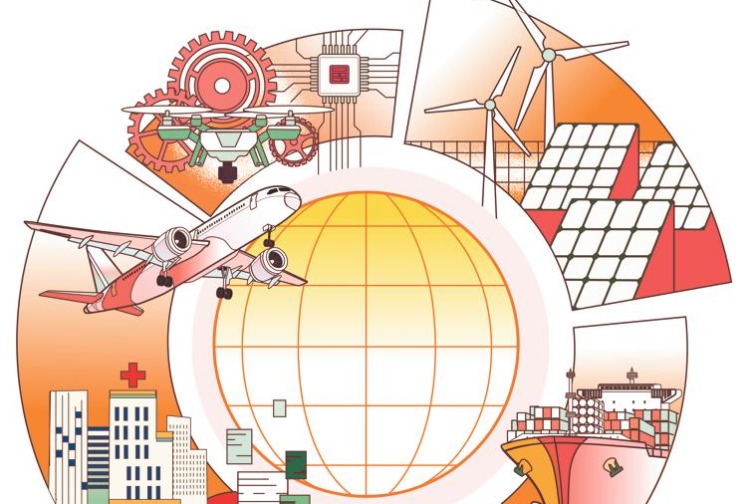How to boost job market under shadow of pandemic


Since early March, another wave of the COVID-19 infections has hit many Chinese cities including Changchun, Shenzhen and Shanghai. In response, local authorities have adopted strict measures to contain the outbreaks. In fact, many cities, despite not being seriously hit by the latest outbreaks, have tightened their prevention and control measures.
The latest wave of infections has especially disrupted the food, tourism, cultural and entertainment sectors. And since these sectors are closely linked to people's livelihoods, the government should attach greater importance to the fight against the novel coronavirus and protecting and creating jobs.
Indeed, the government has been introducing policies to strengthen the job market, including reducing taxes and fees for enterprises ever since the pandemic broke out in early 2020, so that employers do not lay off workers and instead hire new recruits.
In particular, China has been ramping up efforts to reduce operation costs for enterprises. After the outbreak, micro, small and medium-sized enterprises (MSMEs) were exempted from paying the pensions for retired employees, and unemployment and work-related injury insurance for their working staff from February to June 2020, while big enterprises were exempted from paying half of these expenses from February to April 2020.
Apart from that, the government has also subsidized the cost of social security and skills training for the micro and small enterprises, which have been the worst hit by the pandemic, and refunded the unemployment insurance premium to them. Such support policies, over the past two years, have been helping MSMEs to overcome the impacts of the pandemic. And many places have extended the policies till July 2023.
According to this year's Government Work Report delivered by Premier Li Keqiang at the annual session of the National People's Congress in March, the amount of tax and fees businesses were exempted from paying last year totaled an additional 1 trillion yuan ($156.89 billion). And from April 1, the government has been implementing 2.5 trillion yuan tax refund plan nationwide, apart from allowing micro and small enterprises in manufacturing and coal sectors to defer their tax payments.
The government has also taken measures to streamline the process for applying for social care funds-and in some places, people are getting the benefits within 24 hours of applying.
Among the other policies the government has adopted is one that provides employees legal protection against being sacked for contracting the virus. Based on the Law on the Prevention and Control of Infectious Diseases, enterprises cannot lay off employees for being quarantined or adjust their annual or other leaves against the number of days they spend in quarantine.
Yet there is also a need, for governments at all levels, to take more targeted, scientific measures to contain the spread of the virus, especially the Omicron strain. For instance, it is inadvisable to order a large-scale business closure, let alone lock down cities or neighborhoods, based on just the fear of rising cases, as the government directive is to contain the virus at minimum cost to the economy and people's livelihoods.
Given the highly contagious Omicron variant and sporadic outbreaks, working from home and flexible working schedules should be more widely applied. And the financial and the real estate sectors should consider introducing some relief measures such as offering people discounts on loans, mortgages and rents or extending their payment period.
In short, to contain the pandemic, we need collective efforts and society-wide cooperation. So businesses, including those run by individuals, internet giants as well as start-ups should not fire employees for contracting the virus, as doing so will not only help keep the job market stable but also benefit the businesses in the long run.
China is losing some of its demographic dividends. For example, according to the seventh national census conducted in 2020, China's working-age population registered negative growth. So enterprises that have a stable workforce will certainly benefit in the long term.
The views don't necessarily represent those of China Daily.
The author is an associate professor at the School of Public Policy and Management, University of Chinese Academy of Sciences.































